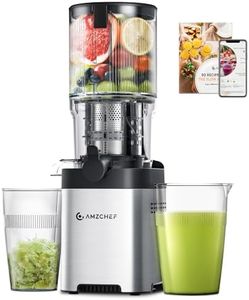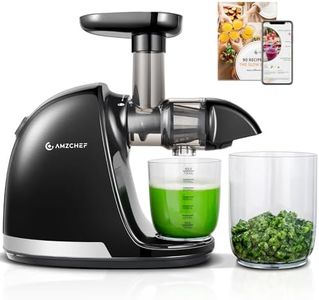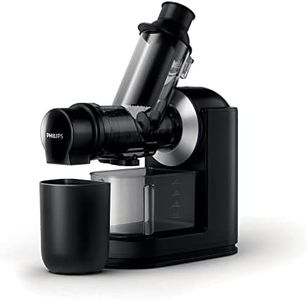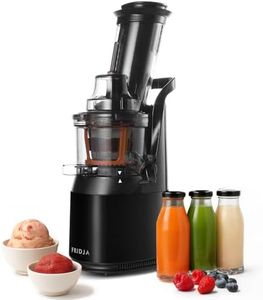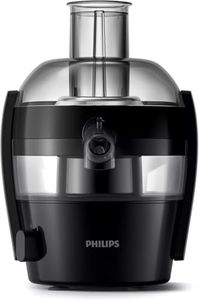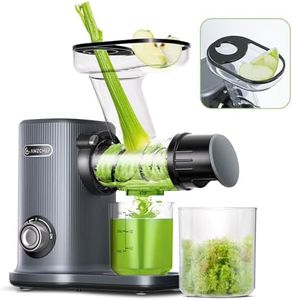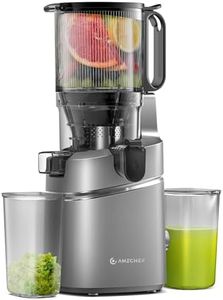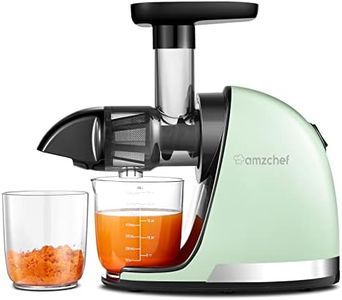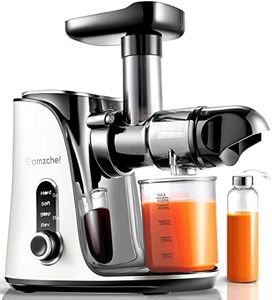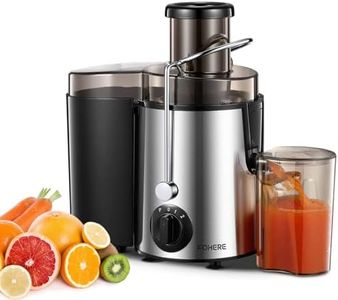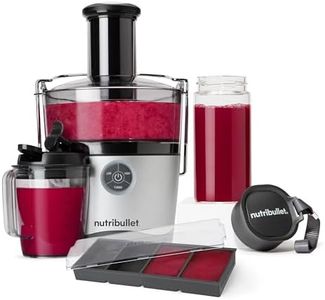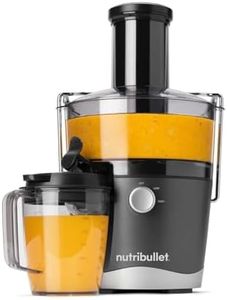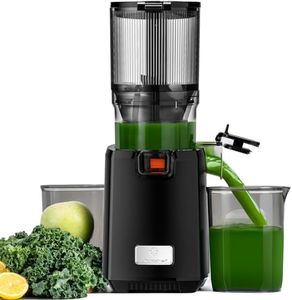We Use CookiesWe use cookies to enhance the security, performance,
functionality and for analytical and promotional activities. By continuing to browse this site you
are agreeing to our privacy policy
10 Best Juicer Machines
From leading brands and best sellers available on the web.Buying Guide for the Best Juicer Machines
Choosing the right juicer machine can significantly enhance your juicing experience, making it easier and more enjoyable to incorporate fresh juices into your diet. When selecting a juicer, consider what types of fruits and vegetables you plan to juice, how often you'll use the machine, and how much time you're willing to spend on preparation and cleaning. Understanding the key specifications of juicer machines will help you make an informed decision that aligns with your lifestyle and juicing goals.Type of JuicerJuicers come in different types, primarily centrifugal, masticating (or slow juicers), and triturating (or twin gear juicers). Centrifugal juicers are fast and suitable for hard fruits and vegetables, making them ideal for those who need quick results. Masticating juicers operate at a slower speed, preserving more nutrients and yielding more juice, which is great for leafy greens and those who prioritize juice quality. Triturating juicers are the most versatile and efficient, but they are also the most expensive and complex, suitable for serious juicing enthusiasts. Choose based on your priority between speed, juice quality, and versatility.
Motor PowerMotor power, measured in watts, determines how efficiently a juicer can process different types of produce. Higher wattage means more power, which is beneficial for juicing hard fruits and vegetables. Juicers with lower wattage are generally quieter and more energy-efficient, suitable for softer produce. If you plan to juice a variety of produce, including hard items like carrots or beets, opt for a juicer with a higher wattage. For softer fruits or leafy greens, a lower wattage may suffice.
Juice YieldJuice yield refers to the amount of juice extracted from a given amount of produce. This is important for efficiency and cost-effectiveness, as higher yield means more juice from less produce. Masticating and triturating juicers typically offer higher juice yields compared to centrifugal juicers. If maximizing juice output is important to you, especially for expensive or organic produce, consider a juicer known for high yield.
Ease of CleaningEase of cleaning is crucial for maintaining your juicer and ensuring you use it regularly. Juicers with fewer parts and dishwasher-safe components are generally easier to clean. Centrifugal juicers often have fewer parts and are quicker to clean, while masticating and triturating juicers may require more effort. If you value convenience and plan to juice frequently, look for a model that is easy to disassemble and clean.
Size and StorageThe size of the juicer affects where you can store it and how much counter space it occupies. Larger juicers may offer more features or capacity but require more storage space. Compact models are easier to store and are ideal for smaller kitchens. Consider the space you have available and how often you plan to use the juicer when deciding on the size. If you plan to juice daily, a model that fits comfortably on your counter might be more convenient.
Noise LevelNoise level is an important consideration, especially if you plan to use your juicer early in the morning or late at night. Centrifugal juicers tend to be noisier due to their high-speed operation, while masticating and triturating juicers are generally quieter. If noise is a concern, particularly in a shared living space, opt for a quieter model to ensure a more pleasant juicing experience.
